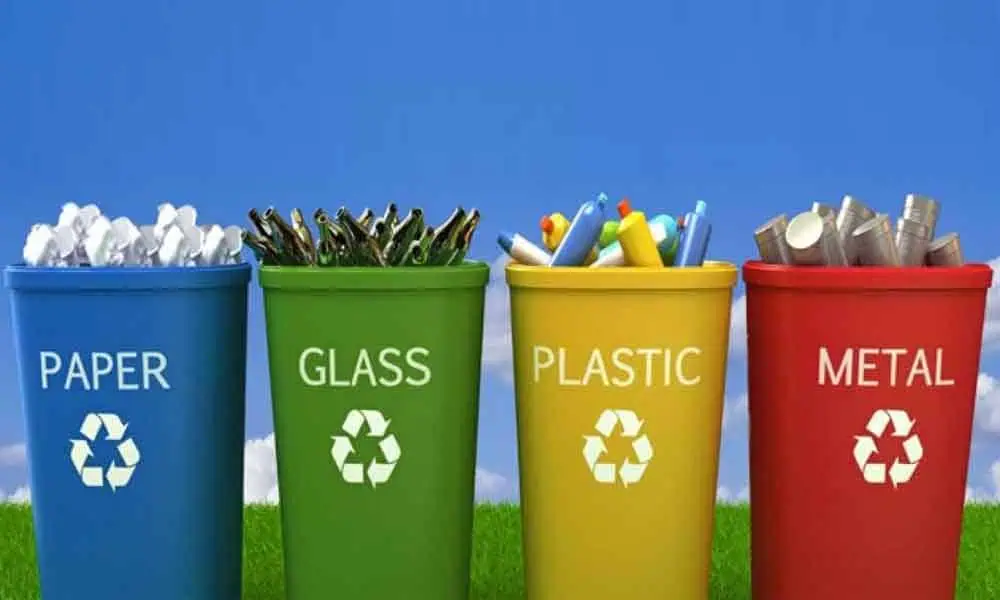The France Waste Management Market is predicted to reach USD 13.06 billion at a CAGR of 4.20% by 2030. This growth reflects increasing environmental awareness, regulatory pressure, & the shift toward sustainable waste management practices across the country. The market’s development is driven by both governmental policies & evolving consumer behaviors that prioritize recycling, waste reduction, & circular economy initiatives.
Market Overview
France, a global leader in environmental sustainability, is seeing a marked shift in its approach to waste management. In line with the European Union’s broader sustainability goals, the French government has been adopting & enforcing various policies that aim to reduce waste generation & increase recycling rates. As a result, waste management companies, municipalities, & industries are investing in advanced technologies & solutions to meet both regulatory requirements & consumer demands.
The France Waste Management Market is characterized by an increasing focus on waste segregation, recycling infrastructure, & the recovery of resources from waste. With a growing population & urbanization, managing waste in urban centers like Paris, Lyon, & Marseille is becoming an ever more complex task, requiring innovation in logistics, technology, & public policy.
Unlock a FREE Sample – Try Before You Buy!
Drivers of Market Growth
- Regulatory Framework:
The French government has committed to ambitious waste reduction & recycling goals. France’s waste management policies are aligned with the European Union’s Waste Framework Directive, which sets out a hierarchy for waste management, prioritizing waste prevention, reuse, & recycling over disposal. Specific laws, such as the “Anti-Waste & Circular Economy Law” enacted in 2020, are helping to steer the country towards a more sustainable future.
This legislation mandates increased recycling targets, extended producer responsibility (EPR) programs, & reduction of single-use plastics. It also encourages the adoption of circular economy principles, where waste materials are reused in the production process, & the lifecycle of products is extended.
- Growing Public Awareness:
French citizens have become increasingly environmentally conscious, & their behaviors are influencing waste management practices. Citizens & businesses alike are shifting towards more sustainable practices, such as sorting waste into recyclables, compostables, & general waste. This growing awareness is prompting increased demand for waste collection, recycling services, & technologies designed to handle waste more efficiently.
- Technological Advancements:
Technological innovation is reshaping the waste management landscape in France. Companies are leveraging cutting-edge technologies like artificial intelligence (AI), the Internet of Things (IoT) & automation to improve waste sorting, reduce operational costs, & enhance overall efficiency in waste collection. For example, AI-powered sorting systems enable better classification of recyclable materials, & IoT devices are being used to optimize waste collection routes, reducing fuel consumption & emissions.
Additionally, there is a growing trend towards waste-to-energy (WtE) solutions, which convert non-recyclable waste into energy through processes such as incineration or gasification. These technologies not only help reduce the amount of waste sent to landfills but also contribute to energy production, which is in line with France’s renewable energy goals.
- Shift to Circular Economy:
The transition to a circular economy is perhaps the most significant trend within the French waste management sector. Circular economy models focus on reducing the environmental impact of products throughout their life cycle. Rather than following a traditional linear model (take, make, dispose), circular models prioritize reusing, refurbishing, & recycling products. This shift is driving demand for more efficient waste management systems that can recover valuable materials from waste.
French companies, particularly in sectors like automotive, electronics, & packaging, are leading the way in adopting circular economy practices. Companies are now required to design products that are easier to recycle, & they are more focused on reducing packaging waste & promoting product repairability.
- Urbanization & Population Growth:
With France’s population projected to increase in the coming years, especially in urban areas, the volume of waste generated in cities will continue to rise. This demographic shift is pushing for greater investments in waste infrastructure, more efficient waste collection systems, & the expansion of recycling programs in both urban & rural areas. Large urban centers like Paris & Lyon are particularly challenged by the growing demand for waste management solutions, requiring the adoption of innovative & scalable technologies.
Key Segments in the Waste Management Market
The Franch waste management market is segmented into several categories based on the type of waste, the service provided, & the treatment method used. These include:
- Waste Type:
- Municipal Solid Waste (MSW): Residential & commercial waste that is primarily collected by local authorities. This segment is witnessing significant growth as municipalities upgrade waste management services to meet sustainability targets.
- Industrial Waste: Waste generated by industries, including hazardous waste, which requires specialized disposal methods. France’s strict environmental regulations ensure that industrial waste is handled with care & in compliance with national standards.
- Construction & Demolition Waste (C&D): France’s booming construction industry contributes to the increasing volume of construction & demolition waste. Efforts are underway to recycle building materials, furthering France’s commitment to sustainability.
- Service Type:
- Collection & Transportation: Companies offering waste collection services are focusing on improving logistics & reducing the environmental impact of their fleets.
- Recycling & Sorting: The focus on recycling is intensifying. Sorting stations & recycling centers are being expanded across the country, aiming to meet higher recycling rates.
- Disposal & Landfill Services: While there is an ongoing effort to reduce reliance on landfills, this segment still plays an essential role in managing non-recyclable waste.
- Waste-to-Energy (WtE): WtE technologies are gaining traction in France, especially as the country seeks to meet its renewable energy targets.
Conclusion
With strong regulatory support, technological advancements, & a growing commitment to sustainability, the France waste management market is poised for significant growth. As France continues to address waste challenges & adapt to environmental pressures, the sector will provide ample opportunities for investment & innovation, ensuring a cleaner & more sustainable future for the country.
Source: PR News Releaser

